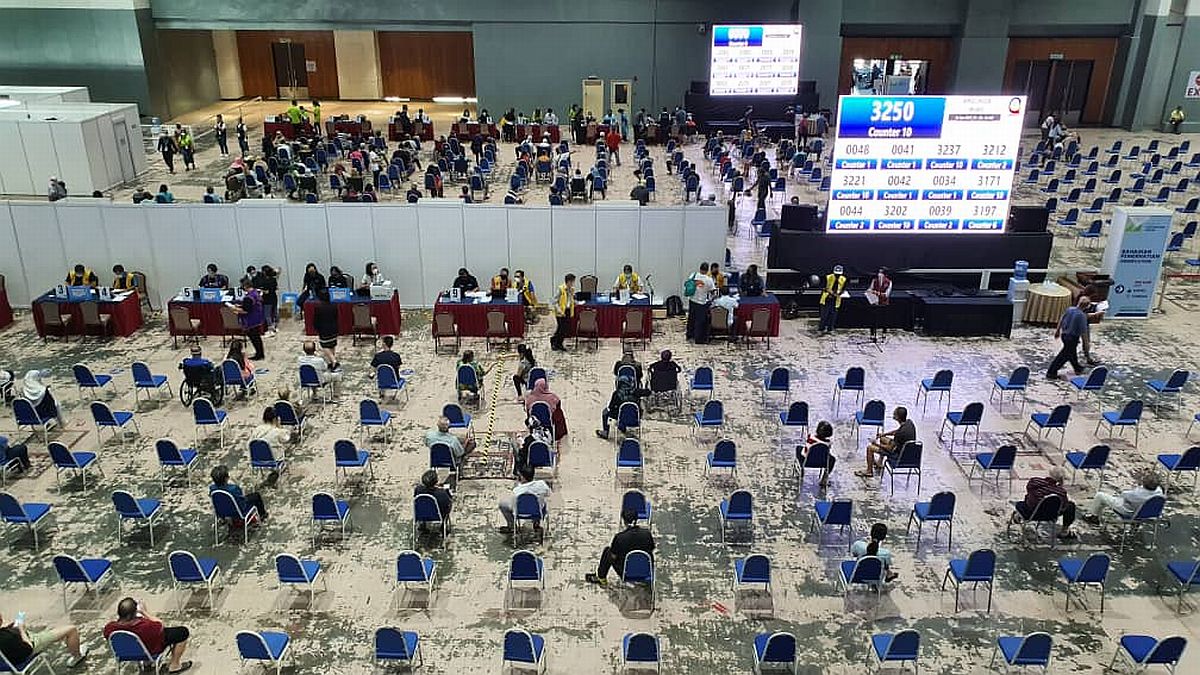KUALA LUMPUR, Feb 27 – Some 1.1 million of 82.85 million total Covid-19 doses acquired by the government, as of April 30, 2022, were identified as wasted after surpassing their expiry dates, according to the Auditor-General (AG).
The AG’s 2021 report (Series 2) tabled in Parliament recently said the Ministry of Health (MOH) has spent RM4.46 billion out of RM5.58 billion allocated to procure 75.88 million Comirnaty, AstraZeneca, CoronaVac, and Convidecia Covid-19 vaccine doses.
Apart from federal procurements, the government also received Covid-19 vaccine doses from state governments, private sector purchases, and donations from other countries, bringing the total to 82.85 million doses.
The national audit found that 71.26 million Covid-19 vaccine doses were administered as of April 2022, leaving 11.59 million doses in balance. Of the remaining doses, about 1.1 million doses (1.3 per cent of 82.85 million doses) have surpassed their expiration dates by one to 212 days.
“However, the audit could not determine the value of the government-procured vaccine doses that have expired. The recording of vaccines through the Vaccine Management System (VMS) could not be categorised based on procurement method,” the AG’s report stated.
Pfizer’s Comirnaty formed the bulk of the 1.1 million expired vaccine doses at 603,954 doses (54.8 per cent), followed by CanSino’s Convidecia at 368,630 doses (33.4 per cent) and AstraZeneca at 130,200 doses (11.8 per cent).
It is likely that more Covid-19 vaccine doses have expired after the audit concluded last year.
Prime Minister Anwar Ibrahim in January revealed that only five to six million Covid vaccine doses are left in stock in Malaysia, after expired doses were destroyed due to poor demand.
The MOH, in a response to audit queries received by the Auditor-General in September last year, said efforts have been made to increase the number of vaccines administered, including raising awareness of booster doses through various media channels and getting subject matter experts involved in media engagement sessions.
The audit concluded that the expired Covid-19 vaccines had caused losses and had to be disposed of.
Insufficient Storage Room For Excess PPE
Government hospitals also have an excess supply of personal protective equipment (PPE) – mainly protective jumpsuits (coveralls) and boot covers – after changes were made to the Covid-19 management guideline, requiring health care workers to only use face masks and gloves in most procedures. Excess supply was also attributed to the decline in Covid cases.
As of July 2022, the percentage of boot cover and protective suit usage compared to the amount left in stock were at 2.2 and 3.1 per cent, respectively, with a balance of 3.08 million boot covers and 840,000 protective suits.
The remaining stock of boot covers and protective suits are expected to last another 639 and 456 days, respectively, from the audit date in July 2022.
An audit review at the Kuala Lumpur Hospital (HKL); the Queen Elizabeth Hospital in Kota Kinabalu, Sabah; the Sabah Women and Children’s Hospital; and the Duchess of Kent Hospital in Sandakan, Sabah, revealed that the pharmacy department’s storage had issues with excess stock of protective jumpsuits and boot covers.
“The slow rate of use of PPE items resulted in insufficient store space, forcing the hospitals to use their seminar halls or rooms as a storage centre,” the report stated.
In comparison to the four hospitals, the audit noted that Sungai Buloh Hospital (HSB) – the country’s primary Covid-19 hospital – had the highest number of excess jumpsuit and boot cover stock at 14,436 units and 215,600 units, respectively. The hospital has not seen any changes in the two stocks in over 30 days from the last audit check in August last year.
Ampang Hospital, which was the country’s second designated Covid-19 hospital after HSB, also had thousands in excess supply of protective jumpsuits (7,265 units) and boot covers (57,480 units) that have not seen any movement in over 30 days since its audit check.
The audit concluded that excess PPE stock causes storage problems and will likely be unused as their expiry nears.








